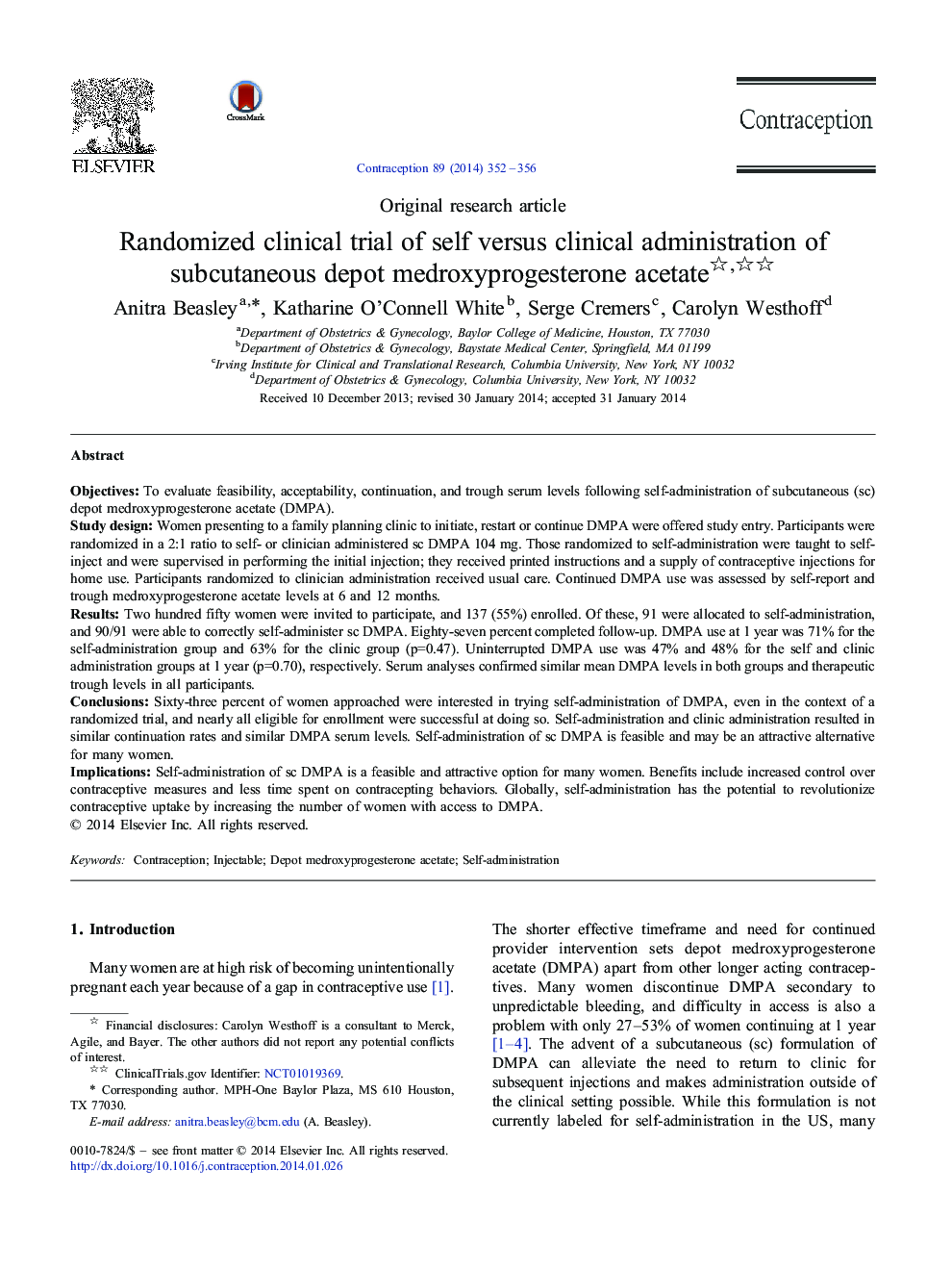| Article ID | Journal | Published Year | Pages | File Type |
|---|---|---|---|---|
| 3913109 | Contraception | 2014 | 5 Pages |
ObjectivesTo evaluate feasibility, acceptability, continuation, and trough serum levels following self-administration of subcutaneous (sc) depot medroxyprogesterone acetate (DMPA).Study designWomen presenting to a family planning clinic to initiate, restart or continue DMPA were offered study entry. Participants were randomized in a 2:1 ratio to self- or clinician administered sc DMPA 104 mg. Those randomized to self-administration were taught to self-inject and were supervised in performing the initial injection; they received printed instructions and a supply of contraceptive injections for home use. Participants randomized to clinician administration received usual care. Continued DMPA use was assessed by self-report and trough medroxyprogesterone acetate levels at 6 and 12 months.ResultsTwo hundred fifty women were invited to participate, and 137 (55%) enrolled. Of these, 91 were allocated to self-administration, and 90/91 were able to correctly self-administer sc DMPA. Eighty-seven percent completed follow-up. DMPA use at 1 year was 71% for the self-administration group and 63% for the clinic group (p=0.47). Uninterrupted DMPA use was 47% and 48% for the self and clinic administration groups at 1 year (p=0.70), respectively. Serum analyses confirmed similar mean DMPA levels in both groups and therapeutic trough levels in all participants.ConclusionsSixty-three percent of women approached were interested in trying self-administration of DMPA, even in the context of a randomized trial, and nearly all eligible for enrollment were successful at doing so. Self-administration and clinic administration resulted in similar continuation rates and similar DMPA serum levels. Self-administration of sc DMPA is feasible and may be an attractive alternative for many women.ImplicationsSelf-administration of sc DMPA is a feasible and attractive option for many women. Benefits include increased control over contraceptive measures and less time spent on contracepting behaviors. Globally, self-administration has the potential to revolutionize contraceptive uptake by increasing the number of women with access to DMPA.
